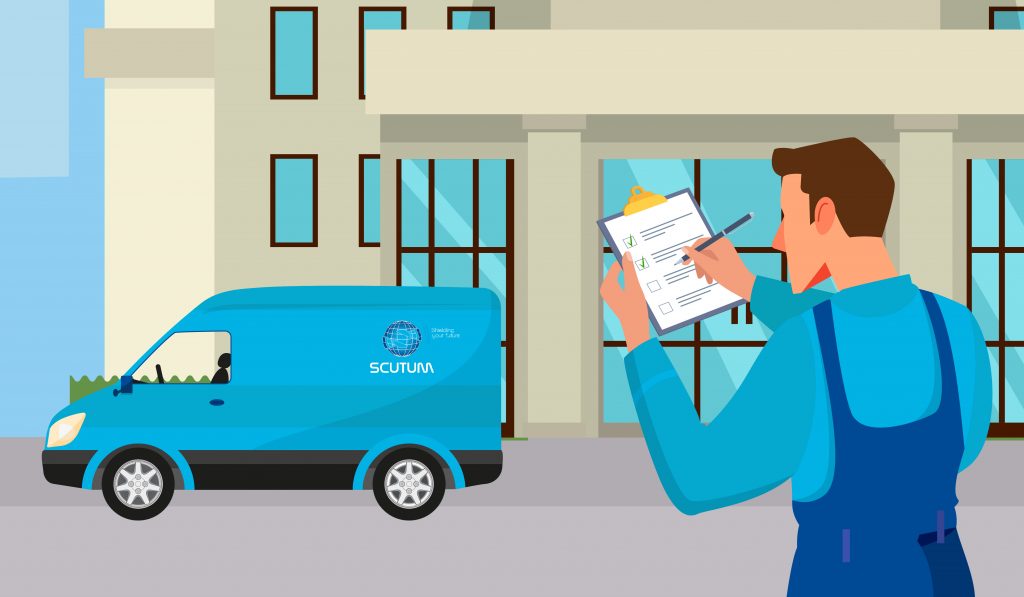Which Buildings Need a Fire Risk Assessment?
If you’re running a business that has its own premises, whether it’s a large factory, a high street shop, a small office or a house that you’re letting out to students, you may be wondering what kind of fire safety precautions you need to take. More specifically, you may be wondering whether you need to have a fire risk assessment carried out on your property.

Quite simply, by law, all business premises need an annual fire risk assessment. If you have fewer than five employees, you still need to do an assessment, but you are not legally required to keep a written record – although we would still recommend it.
The picture is slightly more complicated for rental properties. If you’re renting to a family, couple or single person, the property counts as a private residence and there is no requirement for a fire risk assessment, although you will have other fire safety responsibilities.
However, if your property is a House of Multiple Occupation (HMO) – i.e. it comprises more than five people forming more than one household – or you’re the freeholder or manager of a block of flats, then the same rules apply as with any business, and you do need to carry out regular fire risk assessments.
Read more about fire safety for landlords here.
So, having established which buildings need a fire risk assessment, it’s worth reviewing what one is, what’s included in one and how you go about getting one.
What is a fire risk assessment?
A fire risk assessment is a process by which a building is evaluated with regard to its particular fire hazards and the risks posed to individuals working or living in that building.
There are five key parts to a fire risk assessment, as set out on the official UK government website:
- Identify fire hazards
- Identify people at risk
- Evaluate, remove or reduce the risks
- Record your findings, prepare an emergency plan and provide training
- Review and update the fire risk assessment regularly
A fire risk assessment needs to be reviewed at least annually, with a brand new assessment carried out every five years. Extra assessments should be carried out if the building’s structure or layout has substantially changed or if there is a significant change in the occupants (such as a new vulnerable person).
Read more about the five steps of risk assessments here.
What is included in a fire risk assessment?
Among the things a fire risk assessment needs to consider are:
- What could start a fire?
- What materials in the premises could burn?
- Emergency evacuation routes and exits
- Is there appropriate firefighting equipment?
- Is the risk for some people likely to be greater than others (e.g. visitors and those with mobility issues)?
- How could identified fire risks be avoided or reduced?
Once all the above has been identified and assessed, you then need to:
- Record your findings
- Create a plan in the event of a fire
- Make sure all employees are informed and/or trained
- Regularly review as detailed above
How do I get a fire risk assessment?
A fire risk assessment needs to be arranged by the Responsible Person for the property, which could be its owner or manager. The assessment needs to be carried out by a competent person, who could be the Responsible Person, or a third party nominated by them.
A professional fire safety company, such as Scutum London, will have highly trained and experienced people who can do a fire risk assessment for you. There are several significant advantages to using this kind of service, the main ones being:
- Legal compliance – a professional company will make sure your assessment is carried out in full compliance with all legislation
- Safety – an experienced assessor is far more likely to see fire hazards that you might miss, as well as being able to use their knowledge to devise the most effective plans possible for dealing with a fire
Here at Scutum London, we offer fire risk assessments across the capital, with a skilled and experienced team ready to use their knowledge to help you ensure that your property, staff and visitors remain safe from the risk of fire.
Contact us now to find out more.
Request a Callback
Just fill in your details below and we'll get back to you as soon as we can!

About Scutum London
Scutum London is a leading expert in fire safety and security solutions for businesses and organisations located across South East England, including London and Surrey.
From fire alarms, fire extinguishers and fire risk assessments to access control, CCTV and intruder alarm systems – and a lot more besides – we offer a comprehensive range of products and services designed to keep you, your business and your staff and visitors safe.
With decades of industry experience to call on, we’re proud to hold accreditations from leading trade associations and bodies such as British Approvals for Fire Equipment (BAFE), the British Fire Consortium, the Fire Industry Association (FIA) and Security Systems and Alarms Inspection Board (SSAIB).
If you’d like to find out more about Scutum London, get in touch with our friendly team or explore our products and services on our site.

